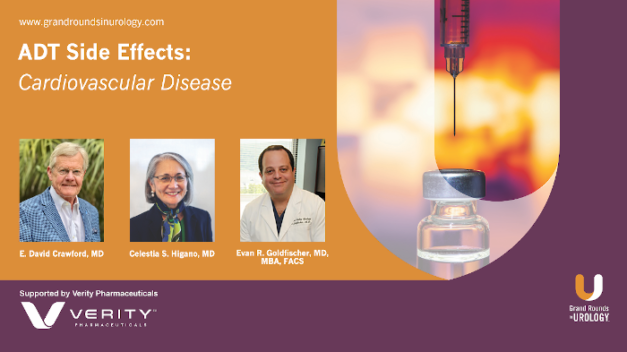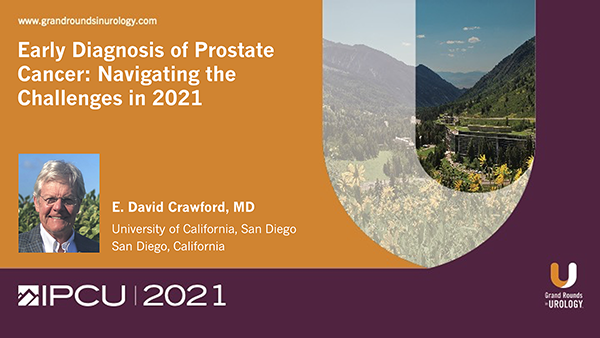ADT Side Effects: Cardiovascular Disease
In a program supported by Verity Pharmaceuticals, E. David Crawford, MD, Editor-in-Chief of Grand Rounds in Urology and Professor of Urology at the University of California, San Diego, discusses reinforcing consistent testosterone suppression in ADT and the role of triptorelin with Scott B. Sellinger, MD, President of Advanced Urology Institute and a Partner at Southeastern Urological Center in Tallahassee, Florida, and Paul R. Sieber, MD, FACS, President of Keystone Urology Specialists in Lancaster, Pennsylvania.
Read More



